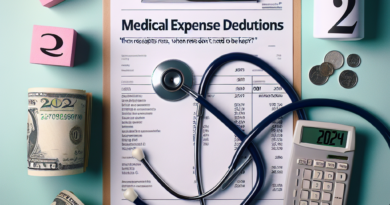Expense deduction from joint account 2024, how not to lose the Irpef refund
If only one of the two spouses bears the expense to be deducted at 100% from a current account held jointly by both, is it possible to save the entire IRPEF discount due? In a few months the new tax return season will open and finding an answer to these questions, which in some cases, may seem thorny, is crucial.
Soon (there are still a few months left) the Revenue Agency will make the tax return pre-compiled with form 730/2024 available to taxpayers.
Even if it cannot be sent immediately, taxpayers will be able to start viewing the data already entered by the financial administration.
If some deductible expenses were paid with a joint account, is it possible not to lose the full deduction? Because it should be remembered that if the current account is jointly held, there are specific rules that must be followed in order not to lose the right to 100% of the deduction and in this article we will see what they are.
Expense deduction from joint account: who is entitled to it? In the case of payments made from a joint current account, the deduction is due to the person who materially incurred the expenses.
This means that they are due to the person whose name and tax code are indicated in the copy of the bank transfer and in the invoices.
Having a joint current account does not prevent you from having the IRPEF refunds due: the principle was indicated both in circular no.
19/E/2020 of the Revenue Agency which in the clarifications from the MEF arrived following the controversial ruling no.
104/21 of the Provincial Tax Commission of Perugia, according to which the deduction would be due in half.
The person who has to fill out form 730 by entering the data of the expenses incurred in 2023 through a joint account is, therefore, the person to whom the tax documents certifying the purchases made or the services purchased are registered.
read also Deductions 730/2024: the complete list of expenses that can be downloaded How not to lose deductions for payments from a joint account: the documents to keep The fact of having a joint account, therefore, does not prevent those who have incurred the expense to benefit from the deduction.
Rather, two other factors are important: paying with traceable means; keep the expense receipts.
It is therefore essential to keep documents such as: receipts, receipts, invoices and payment receipts relating to deductible and deductible expenses; starting from expenses incurred in 2022, documents certifying that the payment was made by traceable means; F24 forms relating to tax payments made; registered rental contract, in case of rental.
read also Refund 730/2023, when is it blocked and what does the Revenue Agency control? Other ways to recover the deduction paid by others Also clarifying this point is a response from the Mef in this regard in which it specifies that the right to the deduction, regardless of who is the material executor of the payment, belongs to the person who is the holder of the documents of expense and that the expense itself was actually incurred by the person who holds the documents proving the cost incurred.
It is therefore sufficient that the traceability of the payment leads back to the taxpayer who is the holder of the expense documents and who will be able to benefit from 100% deductions even if the payment comes from a joint account.
The Mef also specifies that if you use your credit card to pay expenses that your spouse can claim as a deduction, this does not make the latter lose the right to the deduction: in the case of a joint account, in fact, on which the credit card is based credit, is further proof that the expense was borne by the holder of the payment document.
Furthermore, the deduction is not lost even if the expense is paid with a child's credit card without losing the right to the deduction as long as it is demonstrated that the person holding the expense document bears the burden.
In this case, to demonstrate that the expense was incurred, a declaration from the parent stating that he or she has repaid the amount spent by the child to support that expense may also be sufficient.
In support of this interpretation there are also the responses to Revenue Agency Question number 431 of 2 October 2020 and 484 of 19 October 2020.




